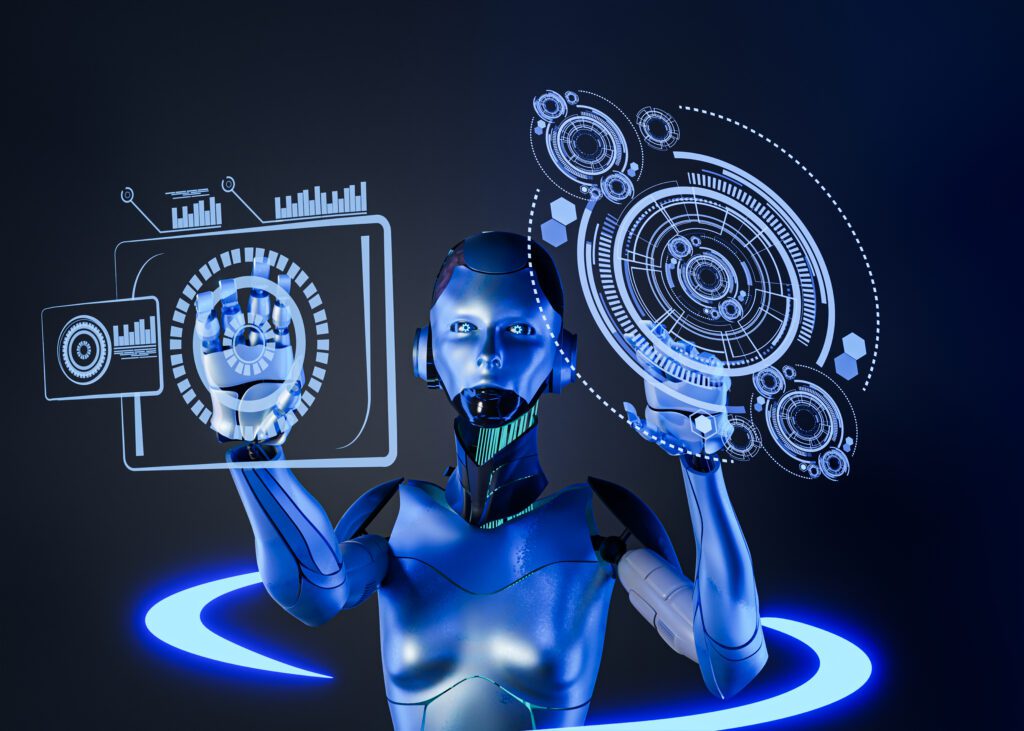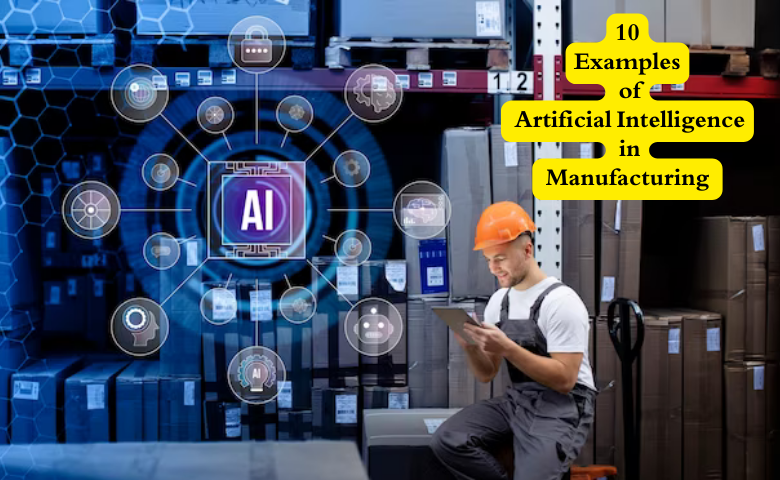In the world of manufacturing, the integration of Artificial Intelligence (AI) is nothing short of a game-changer. Artificial Intelligence (AI) is revolutionizing the manufacturing industry, ushering in a new era of efficiency, productivity, and innovation.
This technology is being embraced by manufacturers worldwide to optimize their operations. In this blog post, we will delve into 10 effective examples of how AI is helpful in the manufacturing sector.
Examples of Artificial Intelligence in the Manufacturing process
10 best examples of AI in the Manufacturing process are explained in given below,
1. Predictive Maintenance
AI-powered predictive maintenance systems analyze sensor data to predict when machines and equipment are likely to fail. This allows manufacturers to schedule maintenance proactively, reducing downtime and saving costs.
Example: Using AI-powered sensors and data analytics, manufacturers can predict when equipment is likely to fail, reducing downtime and maintenance costs.
2. Quality Control
Machine learning algorithms can inspect and identify defects in real-time, ensuring that only high-quality products reach consumers. This results in increased customer satisfaction and fewer product recalls.
Example: AI-driven computer vision systems can identify defects and anomalies in real time, ensuring products meet strict quality standards.
3. Inventory Management
AI algorithms optimize inventory levels, ensuring that manufacturers have the right amount of raw materials and finished products on hand. This minimizes waste and storage costs.
Example: AI algorithms analyze historical data, market trends, and other factors to predict demand, helping manufacturers optimize production schedules and inventory management.
4. Supply Chain Optimization
AI optimizes supply chain logistics by predicting demand, optimizing routes, and managing inventory efficiently. This leads to faster delivery times and reduced shipping costs.
Example: AI algorithms optimize supply chain logistics, reducing transportation costs and ensuring timely delivery of raw materials and finished products.

5. Product Design
Generative design powered by AI helps engineers create innovative and efficient product designs. It considers various parameters to generate designs that are both functional and cost-effective.
Example: AI-based design tools can generate and test thousands of design variations, helping engineers create more efficient and innovative products.
6. Process Optimization
AI analyzes data from manufacturing processes to identify inefficiencies and bottlenecks. It can then recommend improvements to optimize production.
Example: Robots with AI capabilities are used in assembly lines, material handling, and even packing, enhancing efficiency and precision.
7. Energy Management
AI systems monitor energy consumption and recommend strategies to reduce energy usage, lowering manufacturing costs and environmental impact.
Example: AI systems monitor and control energy consumption in manufacturing facilities, reducing costs and environmental impact.
8. Human-Robot Collaboration
AI-driven robots can work alongside human workers, performing repetitive or dangerous tasks, and improving overall productivity.
Example: AI helps manage workforce schedules, assess performance, and improve employee safety in manufacturing plants.
9. Demand Forecasting
AI uses historical data and market trends to predict future demand accurately. Manufacturers can adjust production accordingly, preventing overproduction or shortages.
Example: AI algorithms analyze historical data, market trends, and other factors to predict demand, helping manufacturers optimize production schedules and inventory management.
10. Customization at Scale
AI enables mass customization by personalizing products for individual customers while maintaining efficient production processes.
Example: AI-driven systems enable mass customization, allowing manufacturers to tailor products to individual customer needs.
Artificial intelligence is reshaping the manufacturing industry in profound ways, from enhancing quality control to streamlining supply chains. These ten examples illustrate the versatility and potential of AI in driving efficiency, reducing costs, and boosting innovation within the manufacturing sector. As technology continues to advance, we can only expect AI to play an increasingly integral role in shaping the future of manufacturing.

